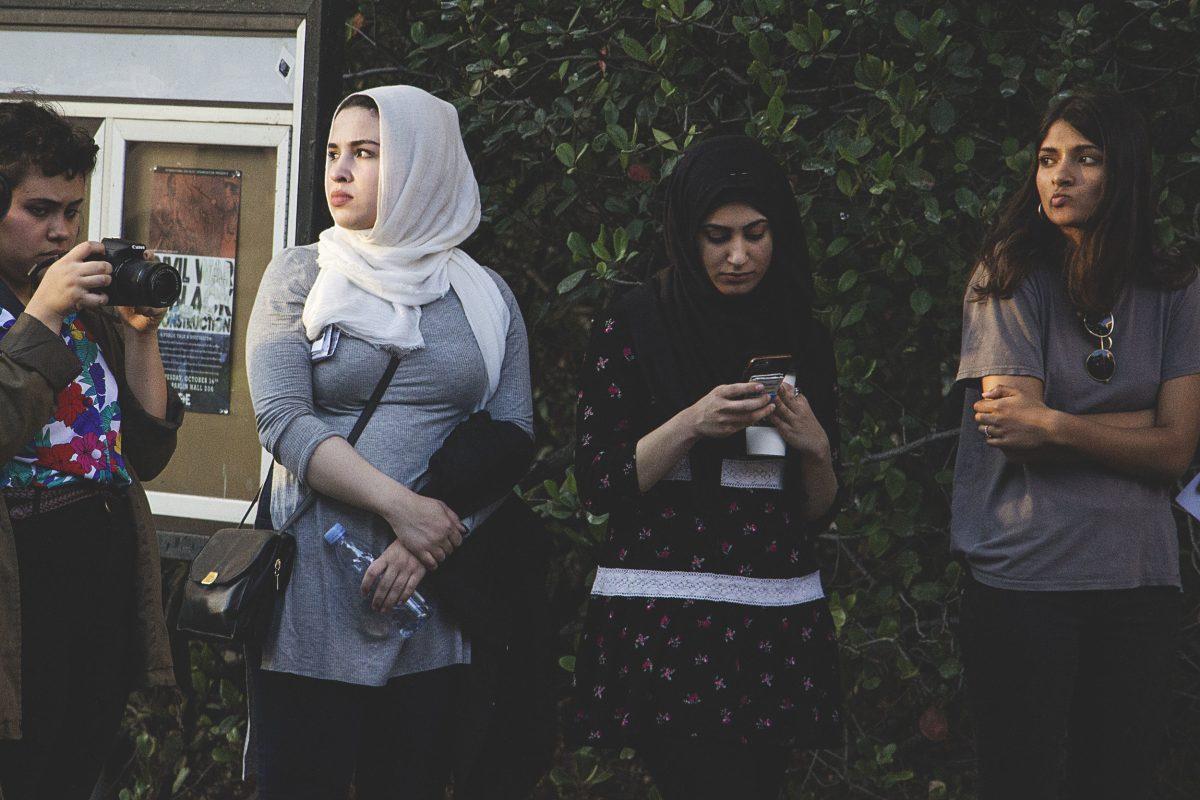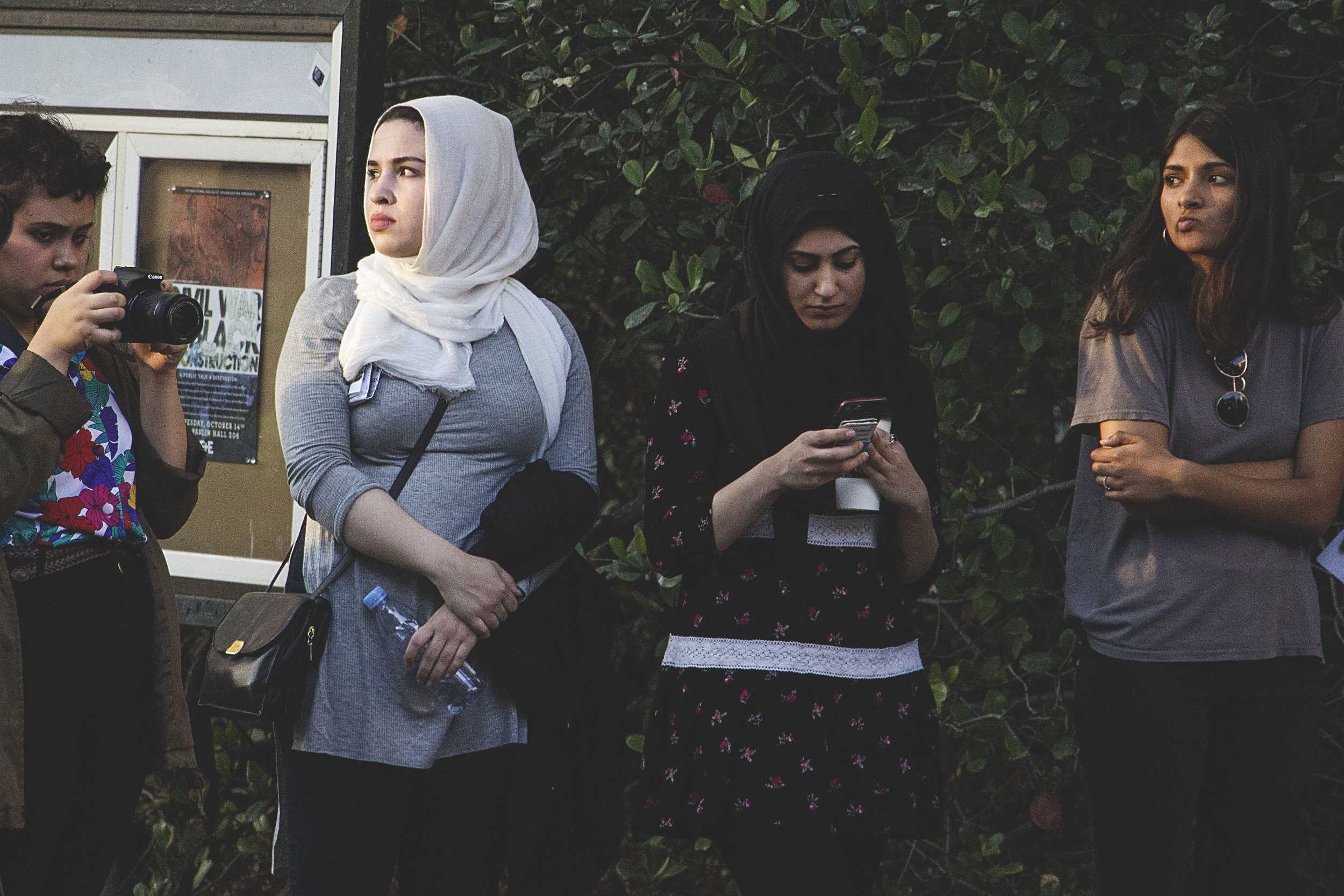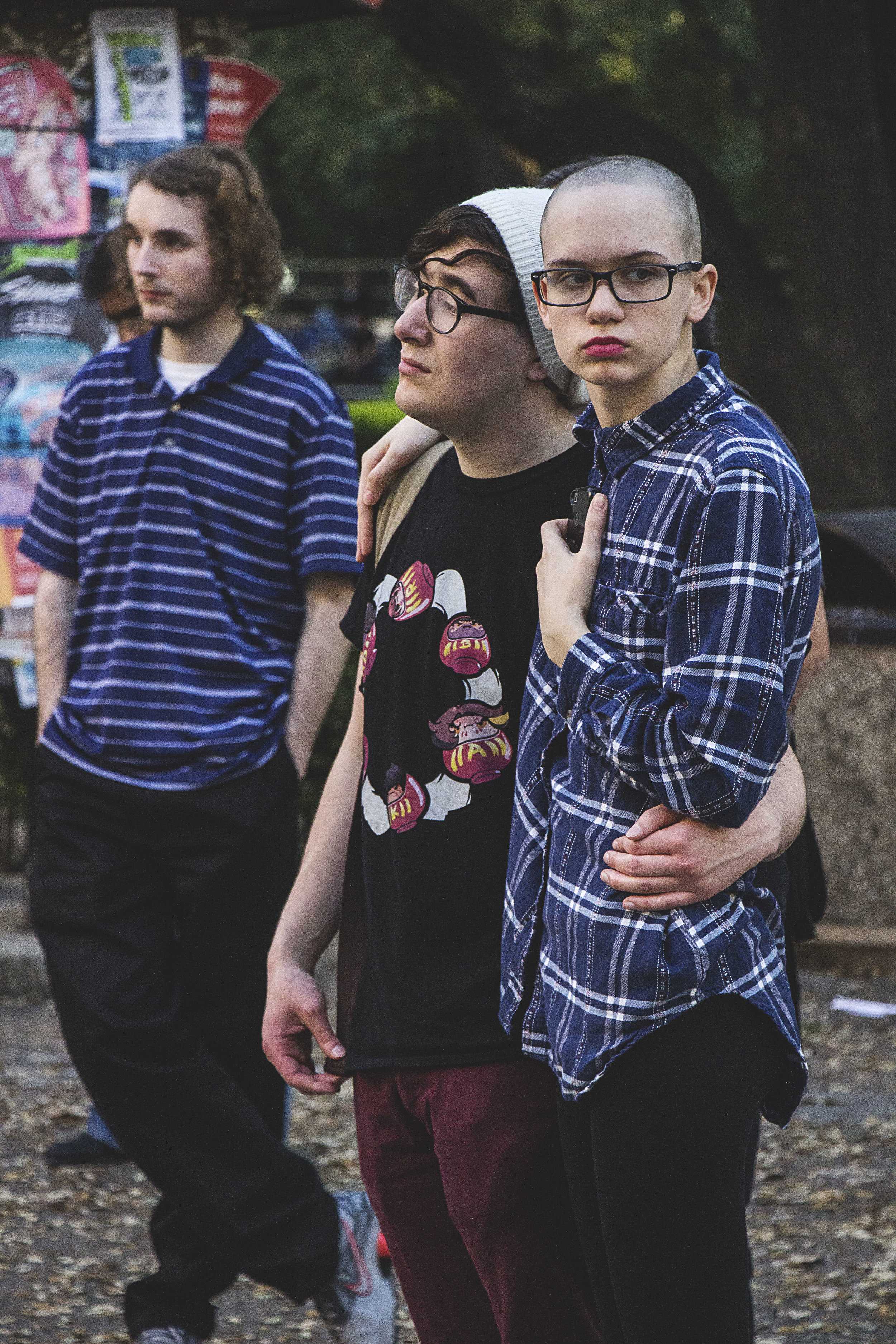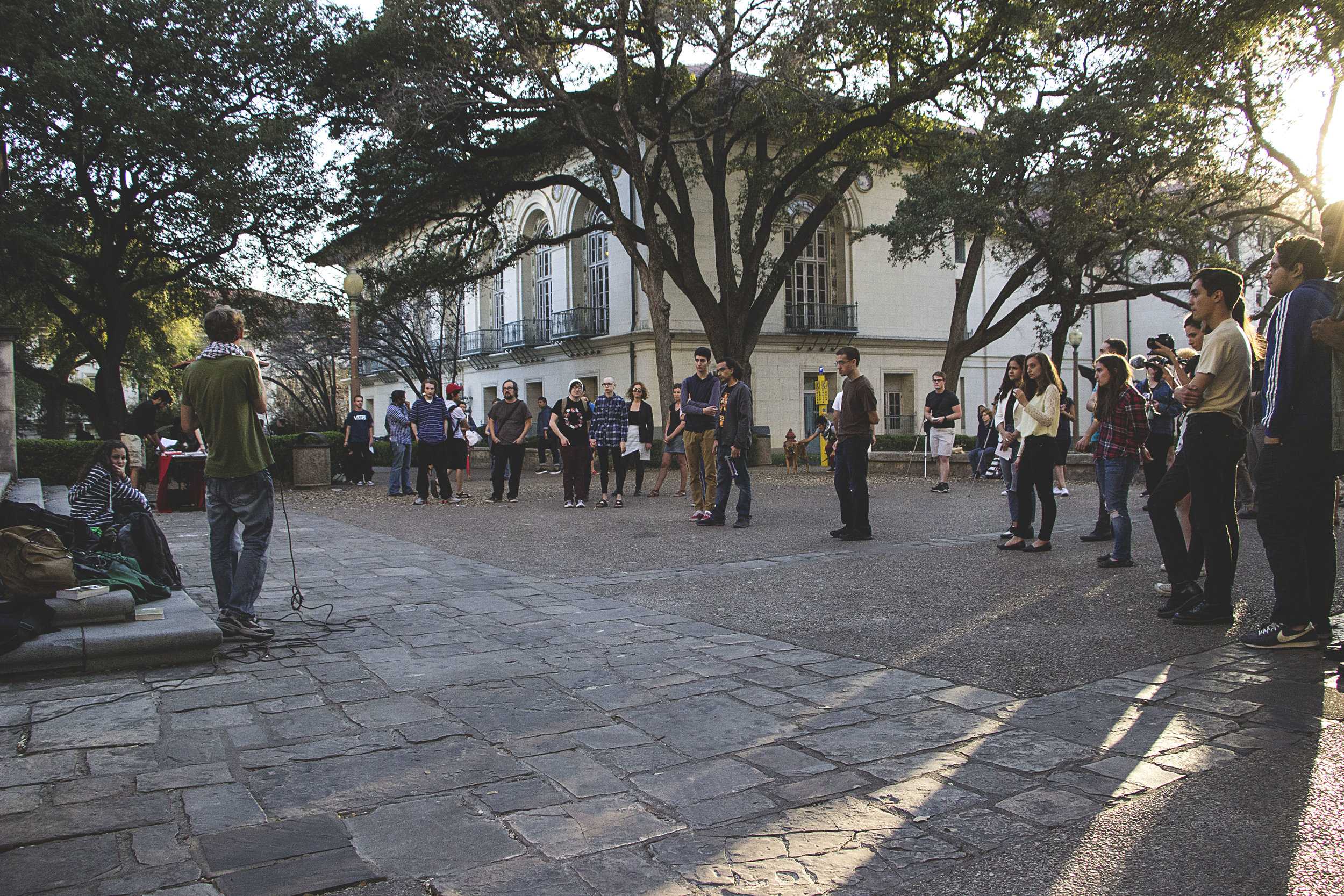Leilah Abdennabi and Sirat Al-Nahi stand amongst protesters in the West Mall.
Editor’s Note: This story originally appeared in Digital Issue V.
A small group gathered in the West Mall of the University of Texas at Austin late February to show their solidarity with Muslims and refugees and to protest against the recent spike of Islamophobic sentiment in the U.S.
Story by Jenan Taha
Photos by Tess Cagle
Public expressions of Islamophobia have been on the rise for the past several years, and UT Austin students have begun to take notice. This increase in anti-Muslim prejudice may be attributed to the influx of stories in the media concerning ISIS, various terrorist attacks and the Syrian refugee crisis. Many of these stories illustrate Muslims as people to be feared and driven away. It is tricky to pinpoint the exact definition and source of Islamophobia, but some people at the protest had an idea of what may be causing the hatred.
Numerous speakers at the protest, which several campus organizations planned in response to recent Islamophobic incidents involving students near campus, blamed U.S. politicians and actions in the Middle East for the rise of Islamophobia. “It’s not enough for us to think about Islamophobia as discrete incidents of violence that happened in the United States against Muslims,” English associate professor Snehal Shingavi said. “It comes and is heightened by American foreign policy and American military interventions.”
Students were in disbelief last December when a Muslim student, Sirat Al-Nahi, was insulted by a patron at Kerbey Lane because of her religion and left the restaurant after management told her nothing could be done. After Al-Nahi shared her experience on Facebook, many students were outraged that this incident happened so close to campus. “I think it’s atrocious and absolutely unacceptable, and no human being should be treated like that,” protester Daria Deptula said.
Leilah Abdennabi, a friend of Al-Nahi who was with her during the Kerbey Lane incident, attended the protest and said that Islamaphobia can happen anywhere. “I think it’s important for us to realize that Islamophobia is widespread, and it can happen in a liberal city like Austin,” Abdennabi said.
Abdennabi believes hateful attitudes toward Muslims are promoted by the actions of the U.S. in Middle Eastern countries, as well as the prejudice of political leaders in the media. “We shouldn’t be surprised that when we kill Muslims in other countries, it’s going to carry on into this country, and it’s going to take the form of hatred against Muslim or Muslim-looking people,” Abdennabi said.
Daria Deptula hugs a fellow protester as they listen to speakers in the West Mall.
Abdennabi has an idea of how to end the spread of Islamophobia. “We can combat it by opposing this hateful rhetoric against Muslims,” Abdennabi says. “We shouldn’t give platforms for hate speech.”
Thousands of students have shown their support for victims of Islamophobia in various ways, from sharing their stories on Facebook to educating others about the issue. “I think Islamophobia is counterproductive,” first-year electrical engineering freshman Jordan Newman says. “The blame for violence is not to be placed on any one group.”
In November, a UT freshman walking on Guadalupe Street and wearing a Muslim Students Association shirt was physically harassed and spit on by a stranger. Students began to realize that Islamophobia was infiltrating parts of their community and even affecting people they know. “It’s ridiculous that something like that could happen at UT,” radio-television-film sophomore Teva White says. “Campus is meant to be a safe and accepting place.”
One particular image that many students on social media considered as an alarming indication of on-campus Islamophobia was a flyer for a Secular Student Alliance meeting. The flyer announced an upcoming presentation titled, “Islam: the Sequel to Christianity That Nobody Wanted.” Many believed the flyer was insensitive, especially in light of other recent instances of Islamophobia.
The speaker who gave the presentation, a student named Taha who did not want to reveal his last name, explained that his speech was meant to be critical toward the principles of the religion itself, rather than Islamophobic. “It’s a religion that, by my standards, has yet to be reformed,” Taha says. “[Islam] has managed to partly destroy society in a major part of the world.”
Taha’s presentation included several reasons why he decided to stop practicing Islam, which he described as “cultish” and “violent.” However, when it comes to Islamophobia, Taha believes criticizing Islam is not the issue, but intolerant actions toward adherents of the religion are problematic. “A lot of people today refer to any criticism of Islam as a religion as Islamophobic, and I don’t think that’s what it should be,” Taha said. “The problem is anti-Muslim bigotry and mistreating them as people, [and] anything that tries to paint all Muslims by the same stroke.”
Mehar, who does not want to share her last name, is a junior exchange student from Pakistan who attended the presentation and shared her experiences with Islam. “I have only hatred towards that religion,” Mehar says. “I’ve grown up in a Muslim country and was really religious, but then I realized what a bigoted classist religion it was. It was so detrimental to everything I ever believed in.”
Mehar, who is a closeted atheist, claims she feels threatened by Islam. “It is bad for women, bad for the cause of feminism…bad for everyone really,” Mehar says. Though, to Mehar, those traits of Islam do not qualify Islamophobia. “You can’t be intolerant,” Mehar says. “I think that we should be more accepting of everyone, especially people who are just trying to follow their religion.”
Students gather at West Mall to protest Islamophobia on campus.
Mehar says she has encountered Islamophobia by a student before and corrected the student’s prejudiced remarks toward Muslims. “He was ill-informed about the religion,” Mehar says. “A lot of people misunderstand the religion just because they don’t know much about it.”
The causes of Islamophobia seem to range widely with each new incident, but they do have something in common. Nellie Jaafar, a member of Arab Students Association and Muslim Students Association, offered some insight on the situation. “I think ignorance and a lack of awareness and understanding helps cause Islamophobia,” Jaafar says. “I don’t think you can completely eliminate it, but I think organizations that have peaceful discussions about these topics help spread positivity and awareness. These groups serve as a voice for so many people, and speaking about these issues can be very influential and powerful.”













































